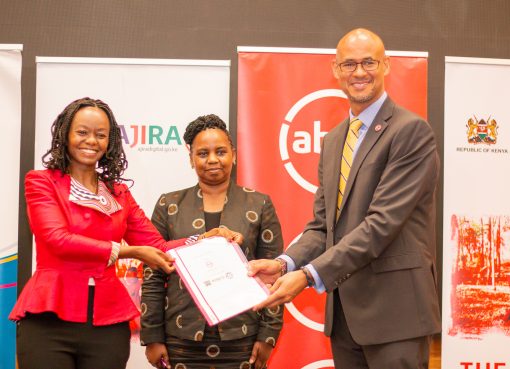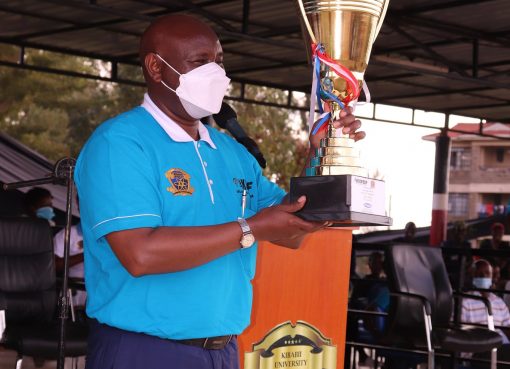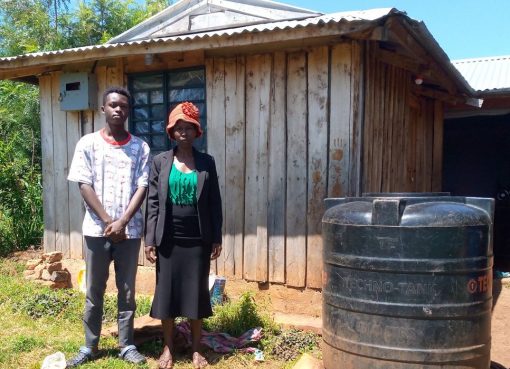Kiambu deputy Sub-county Probation officer Mr. Mogambi Nyachae says for clients that are not suitable to be placed on probation, the department leaves it to the courts to offer an alternative sentence.
The probation department is brought on board during plea-taking, after judgement or re-sentencing when cases are referred to them to do a report that could assist the court to give a final verdict on a client.
The Probation department ideally advocates for inmates to be given a second chance so that they are able to live with their families as they are supervised by the probation officers in their jurisdiction.
Talking to KNA from his office today, Mr. Nyachae says the work of the probation officers is therefore intensive and demands that they have to dig into the circumstances of the crime committed, where, how and the locations in which the probationer will reside in in case they are placed on probation.
On the probationers who are released after serving some period, the officers are charged with the responsibility of knowing where they will reside when they are released from prison.
They also have to investigate the company of their clients to know how they relate with the community, their social orientation, if they are engaged economically or not, and if their lives could be improved if they were empowered to engage in some economic activity.
The officer’s role is also to give a kind word to the court on behalf of their client if they are remorseful and are willing to change and continue with their lives from wherever they offended people or the person in the society.

In court when they are giving their report, statements like , “She is a first offender,” “she regrets the commission of the offence and is pleading for leniency so that she can take care of her child” or “she was lured through peer influence,” are very common prior to the court giving its verdict.
Further, the Bill of Rights in the Constitution article 33(b) states that every person has a right to freedom of expression which includes freedom of artistic creativity. Under the Bill of Rights, a person is allowed to express themselves artistically on the way he landed into the offending status, how he/she felt during this time and what he/she intends to do to cushion himself/herself from re-offending and being on the wrong side of the law.
It is from such scenarios that some nine juveniles were placed on probation by a Ruiru court for committing crimes like stealing, house breaking, truancy and smoking bhang.
The new court has become instrumental in working with the probation department to rehabilitate young offenders.
Prison is not the best place for these young people and it is on this strength that they are given a second opportunity to report to the probation office for counseling and guidance.
When they report on days they agree with their supervisors, they are guided in the way to undertake some work given to them.
They are even engaged in some activity which they perform and with the guidance of the officers, they realize the mistake they committed. They are in a position to apologize to the people they wronged and as they continue with their programme, most of them end up being good citizens who will not reoffend when they complete the period prescribed by the respective court.
The probation department also holds an open day once a year when the probationers are hosted at the probation office boardrooms where they share their experiences, challenges and suggest areas that could be improved on their rehabilitation and reintegration journey.
The United Nations Office on Drugs and Crime (UNODC) supports the judicial system in Kenya through provision of materials to support probationers and construction materials of courts. UNODC is currently constructing a court within Kamiti maximum prison among other activities which it supports in kind.
This year, UNODC has supported nine juvenile probationers from Ruiru law courts celebrate their open day in style. They were enrolled in an arts competition that will see the winner scoop a prize.
This is after they participate in the competition in which they are drawing, colouring and doing mosaic art. This is an activity that can interest the youthful minds to recall what happened to them and help in their recovery process.
Japheth Mwangi (15) (not his real name) was engaged in drawing the activities that led to him being on the programme.
He drew a match stick and rolls of bhang which lured him into crime. He then drew himself having been arrested and handcuffed after which he was taken to prison for the offence. He further drew the probation office where he is now reporting to and the freedom he is working to achieve.
One could easily look at his drawing and see his journey and how he intends to mend his way so that he does not reoffend.
On the other hand, two girls aged 10 and 14 were also engaged in drawing the house in the suburbs of Kiambu where they had stolen from. The two girls and a third one who had not attended the open day had been charged with housebreaking and stealing from the house.
The daughter of their complainant was their classmate and they could visit the house and noted where the key was kept and on the days they knew the family was not at home, they returned, took the key, opened the door and stole household items.
After participating in the competition, the scripts will be forwarded to the headquarters alongside others from some 15 sub-counties from where they will choose a winner.
By Lydia Shiloya





